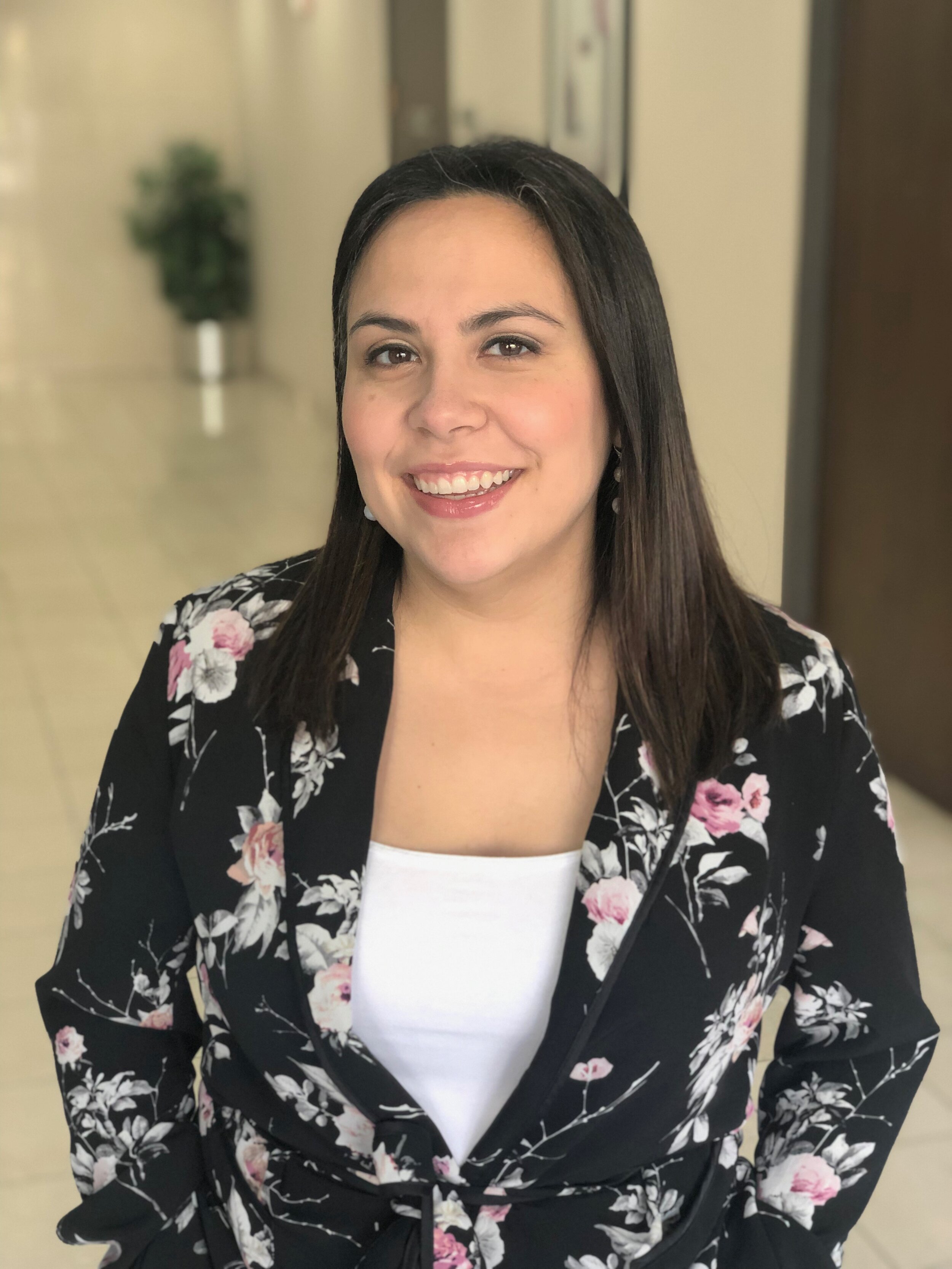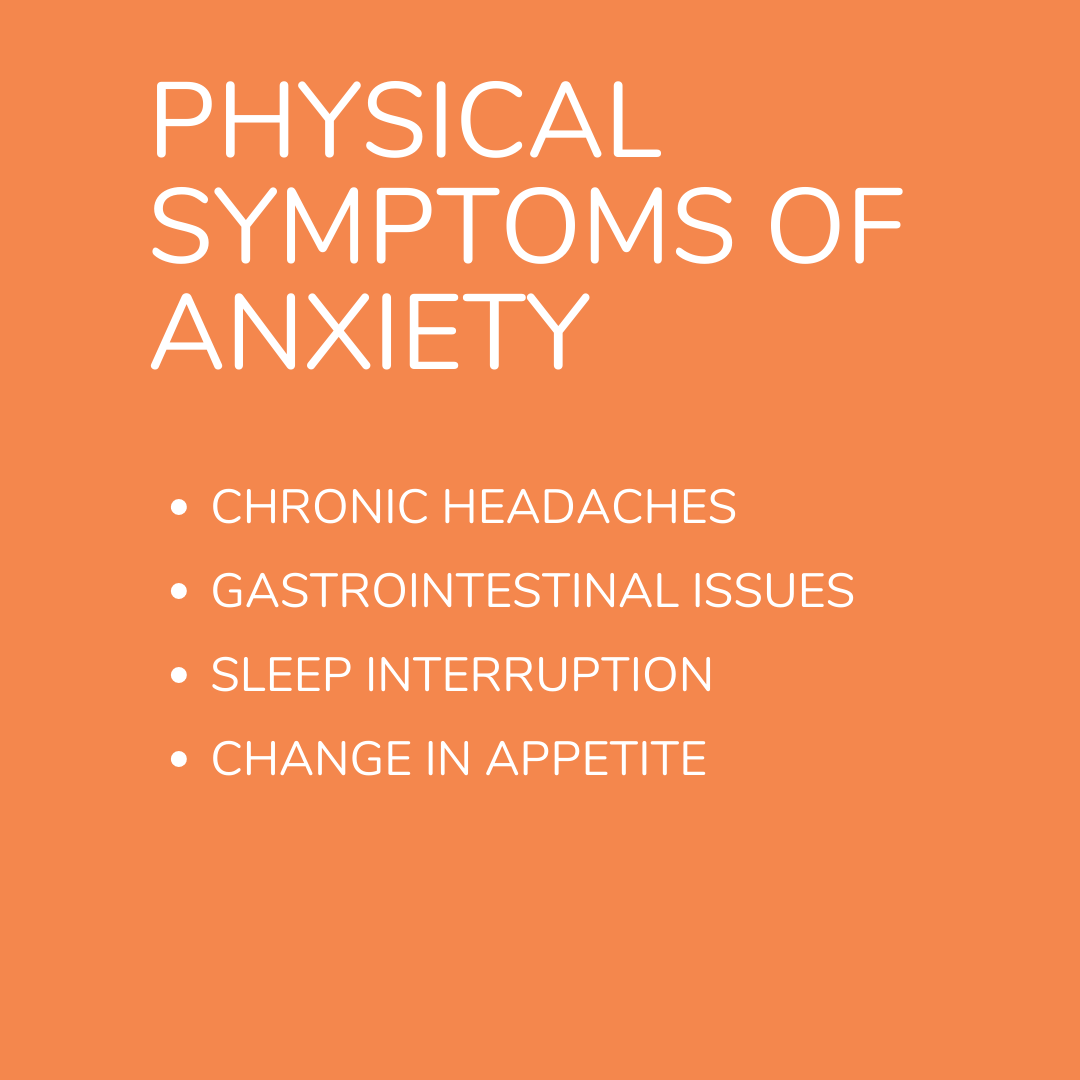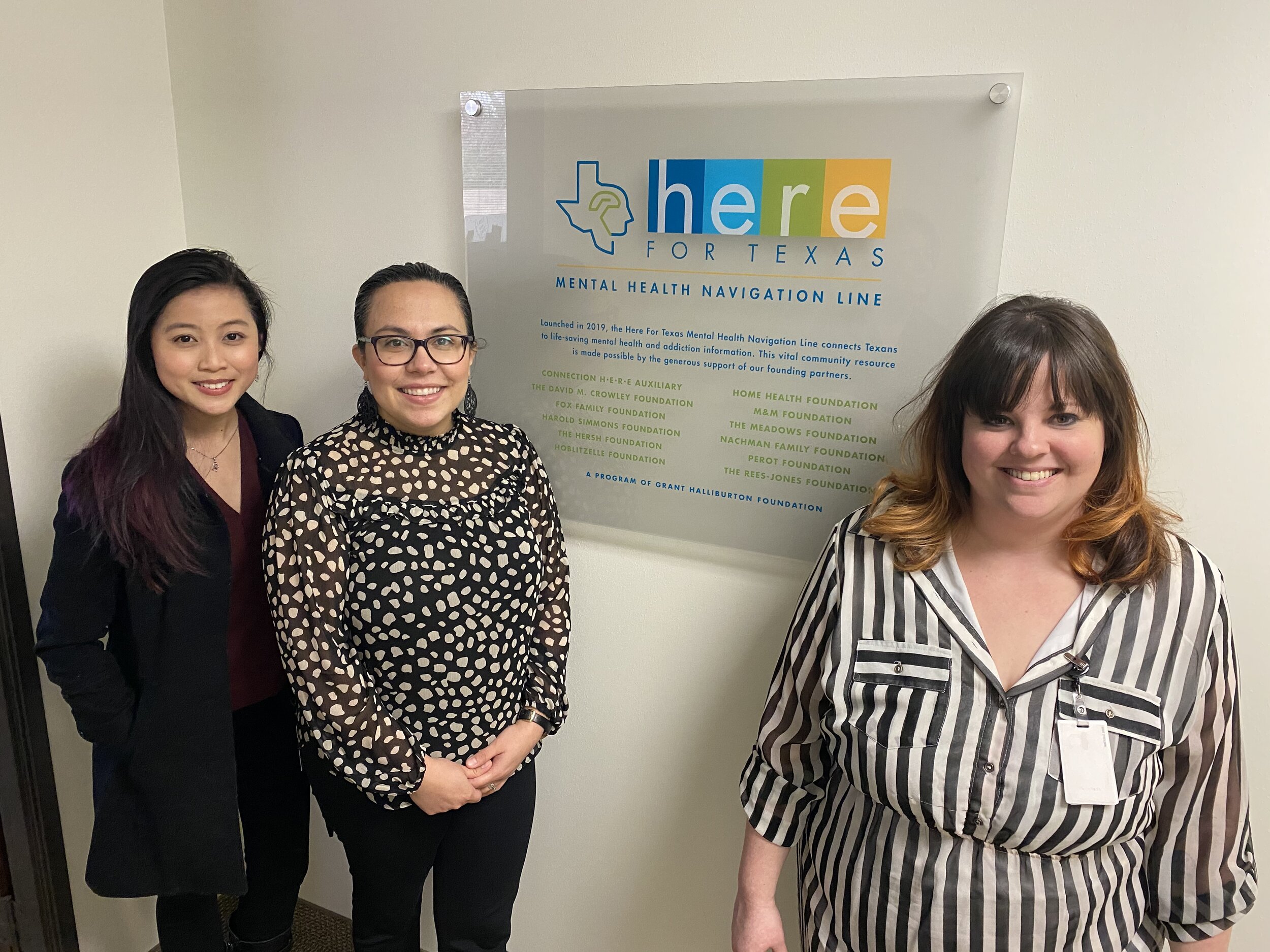Story by Mary Martin. Photos courtesy of Grant Halliburton Foundation.
In a given year, one in every five Americans will experience mental illness. As stress builds and anxiety grows around the unusual circumstances that have come alongside COVID-19, people in every age group, neighborhood, and economic situation are seeing an increased need for professional mental health guidance. And while there are gaps in resources, the Here for Texas Mental Health Navigation Line, developed by the Grant Halliburton Foundation, is working to close those gaps by offering a listening ear and a growing database of counselors, therapists, psychologists, support groups, and treatment centers.

Blanca N. Garcia is the licensed clinical social worker who leads the Here for Texas program at Grant Halliburton Foundation (GHF). Before joining the GHF team, Blanca spent ten years working with children in mental health, providing therapy for children and adolescents. But as she thought about her career path and passion for helping more people, the role of developing a brand new mental health resource on a larger scale was the perfect opportunity. Blanca stepped into her role in 2018 and lead the training development for the new Here for Texas Navigators, the volunteers who answer calls, combining her passion for helping people and her interest in new technology. The curriculum she created includes 40 hours of training on mental health, types of diagnoses, and identifying a crisis situation. “We are not a crisis line, but all of our navigators are prepared to recognize a crisis situation, ask the right questions, and connect that person to help,” says Blanca. Volunteers also go through a phone training with observation before handling calls on their own.
The volunteers Navigators have come to Blanca’s team from across various backgrounds, some with a previous career in mental health, and others who have varied language and cultural experiences. But they are all tied together by a connection to mental health, whether through a personal or professional situation. The Here for Texas line is meant to provide a personal connection in a sea of confusing options when someone is looking for a resource. The Navigators start by asking about the situation and explaining what options exist in the healthcare system. Then the case is passed to Ashley Gordon Prater, a licensed master social worker who identifies and provides a connection to the best resources available. The Navigator follows up with each caller to ensure that they understand the resource, and then calls again to encourage the person to make an appointment. “There is such stigma surrounding mental health and suicidal thoughts,” Blanca says. “Our goal is to walk the caller through the possibilities, give the best information we can, and listen with a non-judgmental approach. We just want you to feel better.”
With COVID-19 isolation in place, the entire Here for Texas Navigation team has transitioned to working from home, using a secure call forwarding app. “Thankfully we have been fully operational with no interruptions,” says Blanca. “We’ve trained 50 volunteers and have about 25 active volunteers at this time. We selected ten navigators to volunteer remotely from their home where they’ve been able to receive calls.” And due to increased stress and anxiety around the pandemic, the Here for Texas line has seen their call intake nearly double from an average of 30-40 calls per month to 50-60 calls per month. “We are hearing from a lot of adolescents who are struggling right now as anxiety beings to manifest in physical symptoms,” explains Blanca. “They worry about their shortness of breath or rapid heart rate and wonder if it is COVID-19. But your emotional state affects your physical body.”
We asked Blanca if she would share some of the physical symptoms of anxiety or a panic attack to help identify what people are feeling. Here are some common symptoms to watch for:
Blanca didn’t have much experience with the signs and symptoms of mental illness until she was a sophomore in college. She was 19 years old when she got a call that her friend had attempted suicide. Since Blanca didn’t have a car, she took her friend to a nearby fire station. But when they arrived, the firefighter questioned the situation and asked, “are you sure you want us to take you to the hospital because this will go on your medical record.” It was then that Blanca realized how prevalent the stigma around mental health is, and has worked to address it ever since.
Growing up in Oak Cliff and currently residing in Duncanville, Blanca has seen not only the heavy stigma around mental health conversations, but also the lack of access to resources in some neighborhoods across North Texas. “The biggest gaps we see are in lower income areas around South Dallas and Pleasant Grove,” Blanca shares. “There are also less providers in rural communities. And we have fewer mental health providers of color, or providers who are Spanish speaking, simply due to the education gap.” But even in areas that lack resources, Blanca and the Navigators are finding solutions, whether it is a translator, pro-bono services, or tele-health professionals. “At the beginning of COVID-19 isolation our team reached out to every provider we could to ask who was offering discounted services to frontline workers or access to tele-health sessions, and we had a huge response,” says Blanca.
Blanca is also quick to remind her callers that the very act of giving your feelings a name can be a powerful tool to manage anxiety. “Recently, I was standing in line to buy some flowers, and as I looked around at all the people standing six feet apart and wearing masks, I was suddenly overwhelmed,” admits Blanca. “Thankfully my husband noticed and was able to name what he thought I was feeling, and we left the situation. Having someone who will notice and speak up is important, and sometimes a mental health professional is the right person to help you untangle the feelings and give your experience a name.” Since COVID-19 is a new experience with nothing that compares to it, Blanca is treating herself and those around her with an extra dose of compassion and grace.
As the Here for Texas Navigators continue to connect callers with resources and professionals, one thing is certain, there will be an increase in mental health concerns due to the current pandemic. “We are looking at major transitions and a new cycle of change,” says Blanca. “We will see a long-lasting impact on emotional well-being and how we all cope.” As calls increase, Blanca is training new navigators to meet the need, with virtual volunteer trainings scheduled for June and September. If you are interested in becoming a Navigator, you can learn more at granthalliburton.org/navigator.
If you or someone you know is experiencing a mental health crisis or suicidal thoughts, please dial 1-800-273-8255 for the National Suicide Prevention Lifeline. For help finding a mental health resource, call the Here for Texas Mental Health Navigation Line at 972-525-8181.



